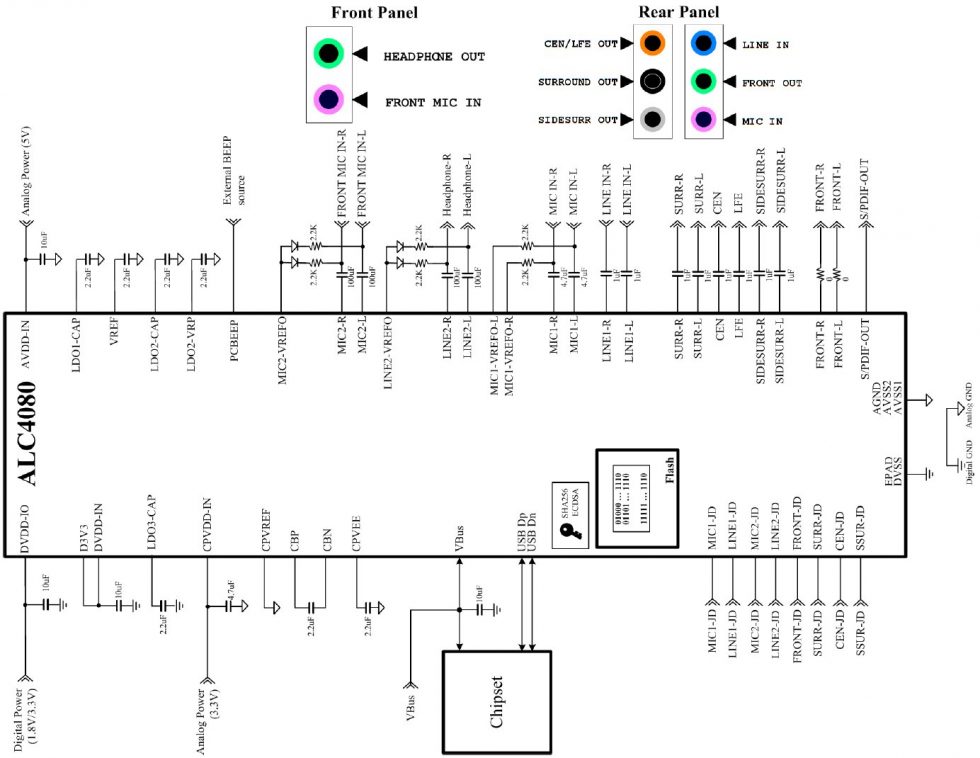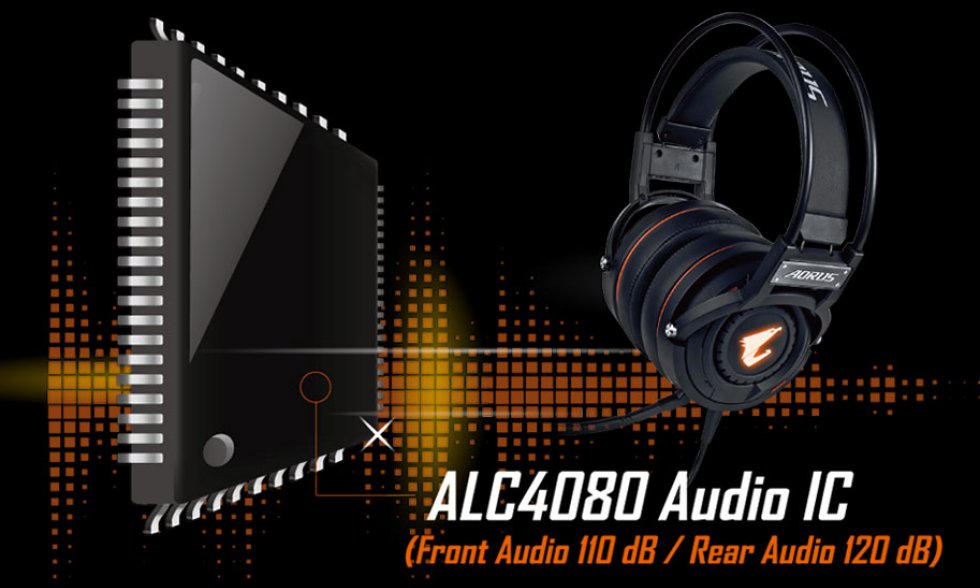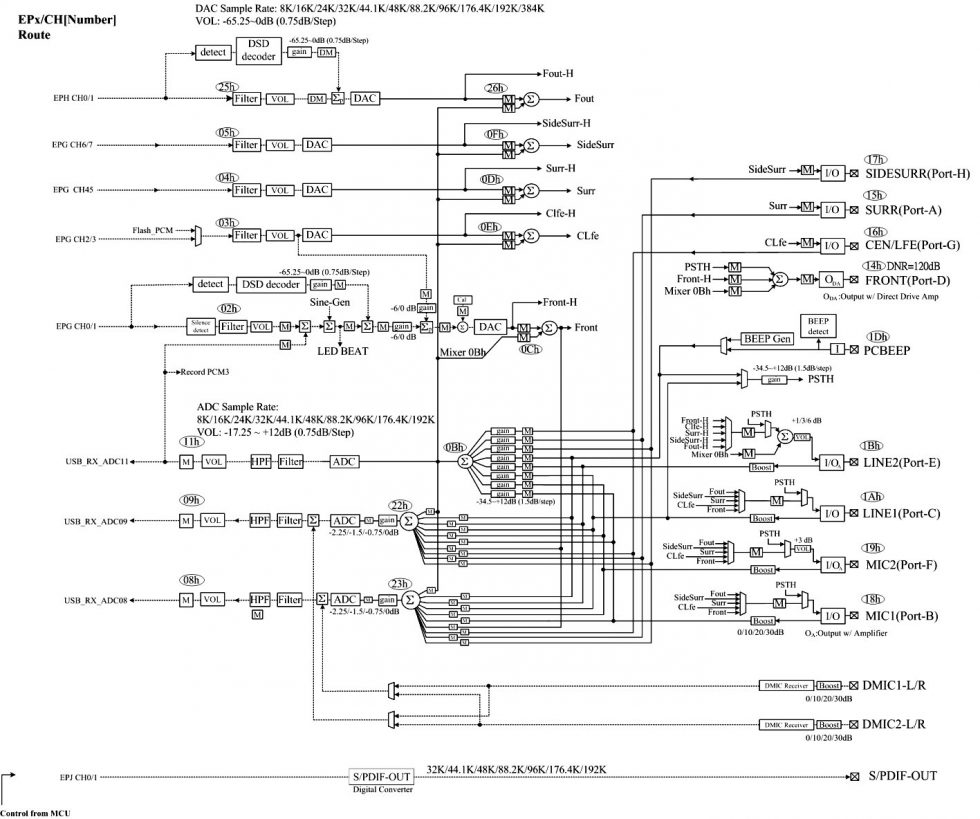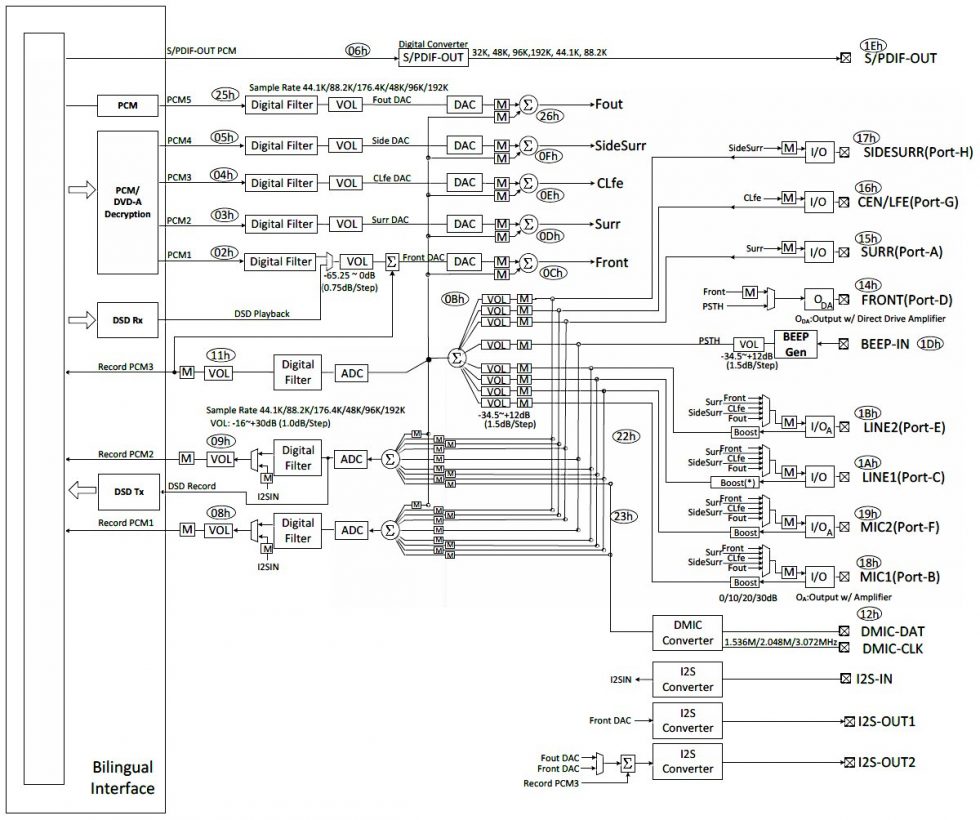The Realtek ALC4080 on the new Intel boards demystified and the differences to the ALC1220 | Insider
The Realtek ALC4080, which was launched in 2020, can now be found as a sound solution on many new mid-range and high-end Intel boards without the customer really knowing what’s behind it. Exactly that I would like to change today gladly and have a suitable data sheet from a mainboard developer procured. The ALC4080 breaks with the long tradition of direct connection to the SoC via a bi-lingual interface (HD-A or I2S/I2C) and uses USB instead. Yes, you read that right, the chip moves with the connector from the CPU to the chipset. Whether you have to find that beautiful or not, remains to be seen, but it is practicable.
And no, the ALC4080 is NOT the successor of the ALC1220, as you could read in many media, but a completely new chip class with a fundamentally different technical solution and connection. To illustrate this, let’s look at the two block diagrams. On the left we see the ALC1220 with the bi-lingual interface and on the right the USB-based, new ALC4080, which can be flexibly flanged anywhere:
The ALC4080 in detail
The ALC4080 is a single-chip, multi-channel USB audio codec that embeds a USB 2.0 controller with a high-performance audio codec. For USB audio, it supports a standard HID-class USB audio device designed for PC motherboards and multi-channel audio systems/devices in all major commercial operating systems, such as Windows, Linux, iOS, macOS, and Android. It offers ten DAC channels supporting simultaneous 7.1-channel playback, as well as two channels of independent stereo output (multiple streaming) via the front-panel stereo output, with a signal-to-noise ratio (SNR) of up to 120 dB for playback of PCM streams.
The ALC4080 also features a Direct Stream Digital (DSD) decoder, allowing users to enjoy high-quality DSD streamed content and create their own DSD stream with minimal quality loss through DA converters. A total of three stereo ADCs are integrated and can support multiple analog audio inputs, including a 110dB SNR stereo line-level input and a microphone array with Acoustic Echo Cancellation (AEC), Beam Forming (BF), Noise Suppression (NS) and Far Field Voice Pick up (FFP) software features.
All analog inputs and outputs are input and output capable and can be reassigned according to user definitions. Three headphone amplifiers are integrated at the analog output ports (Port-D/Port-E/Port-F). The headphone amplifier at port-D (FRONT) is a cap-free type, which can save an external coupling capacitor and offers less distortion and pops. This headphone amplifier on Port-D has an output level of 2 Vrms and can drive high impedance headphones (up to 600Ω); it also has an impedance detection function to automatically adjust the output volume with the excellent sound response preferred by musicians and players.
Support for 16/20/24-bit SPDIF output with a sampling rate of up to 192 kHz makes it easy to connect PCs to HDMI (High Definition Media Interface) transmitters or consumer electronics products such as digital decoders and A/V receivers.
Summary from the manufacturer:
The ALC4080 is a high-speed, high-performance USB 2.0 audio codec for USB Type-C multi-channel (Ture 7.1-channel) gaming headphone/headset and audio adapter applications. With software utilities such as ambient noise emulation, multi-band and independent software equalizer, dynamic range compressor and expander, optional third-party software features such as Dolby, DTS, Waves and Fortemedia, as well as Creative Host Audio, the ALC4080 delivers the highest quality sound, ensuring a superior entertainment package and gaming experience for PC users.

The differences to the ALC1220
The ALC1220-VB is also a SoC and a high fidelity multi-channel audio codec with bi-lingual interface supporting High Definition Audio 1.0a and industry standard I2S and I2C. The ALC1220-VB also offers DRM, 10 DAC channels and two channels for multiple streaming. The signal-to-noise ratio (SNR) at the front panel is also up to 120 dB. Three stereo ADCs are also integrated and the line-in offers up to 110 dB SNR, just like the ALC4880.
| Realtek ALC4080 | Realtek ALC1220 | |
| Communication | USB 2.0 | bi-lingual (I2S and I2C) |
| Front Audio SNR | 120 dB | 120 dB |
| Stereo Line-In SNR | 110 dB | 110 dB |
| Stereo ADC | 3 | 3 |
| Direct Stream Digital (DSD) | Encoder, Decoder | Encoder, Decoder |
| Fornt Audio (Port D) | Capacitor-free Summary and conclusion The “new” ALC4080 is also better than the usual onboard call, but also has some significant disadvantages. The codec itself is absolutely fine and a blind test with sensitive low impedance headphones will reveal a slight noise floor at most, but this also depends strongly on the external circuitry and the selected gain. Otherwise it is a differently connected solution very similar to the ALC1220. No more, but also no less. Thread: ALC 4080 random static noise (M13Apex)Thread ToolsSearch ThreadDisplayYou have an ASUS ROG SS3|DTS Sound Unbound motherboard with ALC408x codec, so : You need Realtek USB Audio Drivers (UAD — ASUS ROG SS3-DTS MB) from the first post of this thread : [DRIVERS] Realtek USB Audio (MB | Intel 5xx & AMD 5xx/TRX40). Follow scrupulously your CLEANUP process then your INSTALL process, for the next drivers packages that I would release, you will can directly follow your UPDATE process. Once it’s done, follow these 2 TIPS : 1) Disable hibernation : — Don’t touch to the default sampling rate (48000Hz 24Bits) in a first time to test (for information, DTS Sound Unbound is incompatible with a sampling rate above 48000Hz 24Bits). First of all I want to notice this issue is not present on ALC 4082 analog outputs. So, no sense to tweak anything in OS since ALC 4080 codec gives static sound out of the box. Firmware fixes only ALC 4080/4082 SPDIF static noise but not analog for ALC 4080. I’m not even touching long WIndows boot issue https://www.tenforums.com/sound-audi. 90-issues.html
ALC 4080 random static noise (M13Apex)
Today I caught this hiss in the BIOS. 1. Change your CPU vcore voltage in the BIOS to any value which will get you BSOD under stress. Unstable overclock or unstable undervolt, doesn’t matter. P.S. if this won’t work for you, try to reproduce it again with chassis front panel audio output . One more method how to catch it under Windows (might take some time) from another 13 Apex owner using Dual Intelligent Processors 5 app (there is also weird sound cuts when he switching AI Cooling toggle, I suspect this is not normal too). 5.1 speakers, 192000Hz 32Bit, analog. Igor’s Lab digging this problem with analog static noise and cuts out. Long story short: Now we come to the actual problem, namely the dropouts, sporadic volume changes and even a (rather rare) unmotivated «pop» when the volume control is set above 50%. Here I have used my manufacturer contacts and asked directly to the producers and their development departments. If you believe the first findings of the FAE (Field Application Engineer) involved everywhere, the problem even lies outside the audio chip, namely in the MCU (Micro Controller Unit), which is responsible for the RGB effects of the individual components. Asus Maximus XIII Apex onboard ALC 4080 audio codec makes static noise over front or rear analog audio outputs. Static noise example (if video doesn’t work here, open it on YouTube): Fresh Windows 10 install (latest updates).
I have suspicions that changing sampling rate for analog outputs to anything different than stock settings can be cause of this issue but I’m not sure. I’m still testing. By default sampling rate settings in my case are 48000Hz and 32Bit. Am having the same issue with my ROG Strix Z590-F. Randomly sound will just go to a static hiss, mainly during video but has happened once in a game too. Going to sound settings, changing output to another option and then back to Realtek USB Audio resolves it — until next time. (Latest drivers from ASUS installed and the firmware update) Am having the same issue with my ROG Strix Z590-F. Randomly sound will just go to a static hiss, mainly during video but has happened once in a game too. Going to sound settings, changing output to another option and then back to Realtek USB Audio resolves it — until next time. (Latest drivers from ASUS installed and the firmware update) Just for clarification, are you speaking of analog audio outputs? Could you post your current sampling rate from Windows settings and also, if you know, is your RAM running in Gear 1 or Gear 2 mode?
Windows loudness control is stuttering and System Sounds are delayed all the time. 340 Euros for the toilet. good Job Asus Adblockdetector |


